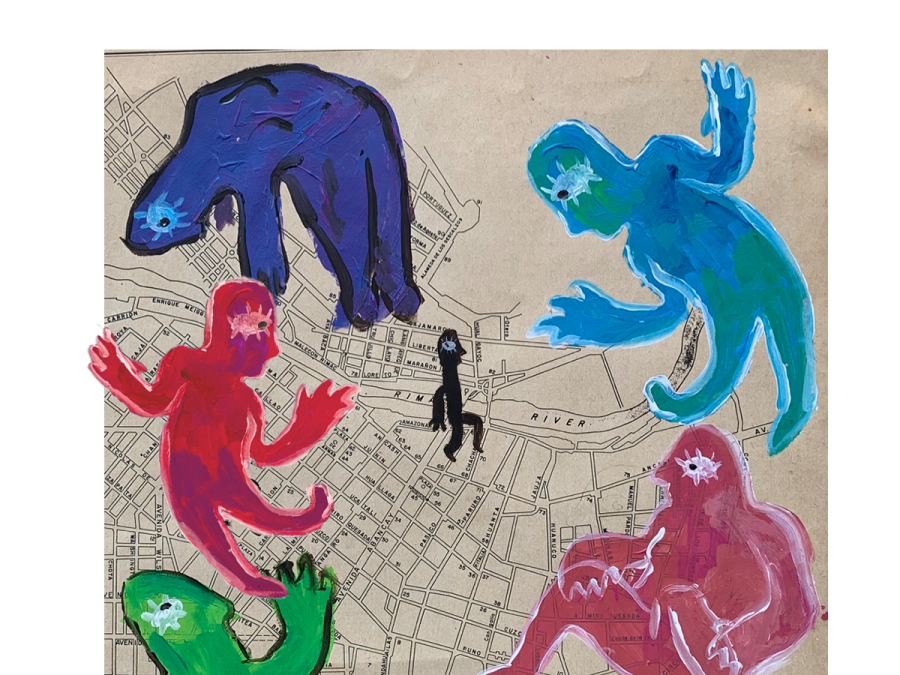Thousands of strangers fresh out of high school arrive in a brand new city. They sleep in small rooms with someone they’ve never met before and attend events to try to find the community they belong in. They talk to countless people, many of whom they will never meet again, for snippets at a time. In this environment, it’s easy to get lost in a crowd where everyone is trying to distinguish themselves, to make themselves heard. Yet, it is a pivotal time to find people to support you throughout the next four years.
You may be familiar with these events — the infamous transition into college. It’s difficult for everyone, but especially for socially anxious or introverted students.
In order to help socially anxious students with their transition into college, the Counseling and Mental Health Center should expand their workshop on building social confidence to accommodate more students.
Many people with social anxiety have difficulty starting conversations and attending social events. In an urban environment where the “mind your own business” mentality thrives, the first year of college can feel like an eon of loneliness.
When I came to college, I found navigating new friendships in this fast-paced environment intimidating, especially without an established support system. I felt an intense pressure to make new friends, but was often too shy to initiate conversations.
One thing many people with social anxiety find especially difficult is being comfortable in large groups — something that is omnipresent in many lower-division classes and at orientation.
Sociology sophomore Devia Joshi agreed.
“In smaller groups, it’s easier,” Joshi said. “It’s like a forced interaction, which kind of helps because you can’t hide.”
Group size isn’t the only inhibiting factor for people with barriers to socialization. Even just approaching individuals and starting a conversation can feel like an uphill battle.
“There are a lot of times where we do walking in groups for orientation or something and I would think about approaching someone, but I’d be too nervous,” said Julianna Leung, international relations and global studies sophomore. “And then next thing you know, I don’t have anyone to talk to in the group.”
The discomfort of adjusting to a totally new social situation is bound to take a toll on the overall happiness of students who face difficulties adapting. This is not insignificant. According to the American College Health Association, 67.4% of college students have felt very lonely in the past year. Feeling like you can’t find a community induces a great deal of anxiety in many students.
At UT alone, 76% of the issues the CMHC helps students with are related to anxiety. The CMHC currently offers a multitude of services students can turn to, one of which is a group therapy class called “Build Your Social Confidence.” However, the need for this kind of counseling may exceed what the class can handle.
This class is offered every Monday for the entire semester, but is limited to a small number of students. It’s currently full.
“Therapy groups have 5 to 10 members,” said Katy Redd, associate director for prevention and outreach at the CMHC. “It’s being run by licensed mental health professionals, but we do limit the number of students who participate.”
Given the overwhelming statistics about loneliness and anxiety among college students, the CMHC should expand this workshop to accommodate more participants by offering more sessions and further publicizing it as a resource.
“I think it might serve some students in a better way to show that they’re not alone,” Leung said. “You’re not crazy for feeling super shy and excluded. You shouldn’t feel unwanted because of that. It’s just that there are a lot of moving parts in social interaction.”
The University of Texas is an excellent place to get an education, but if students feel alone and ostracized, their memories won’t be fond. The brick wall of social anxiety can be prohibitive in such a turbulent environment, and we need to ensure that all students feel comfortable finding their community.
Lazaroski is an international relations and global studies sophomore from Dallas.





















